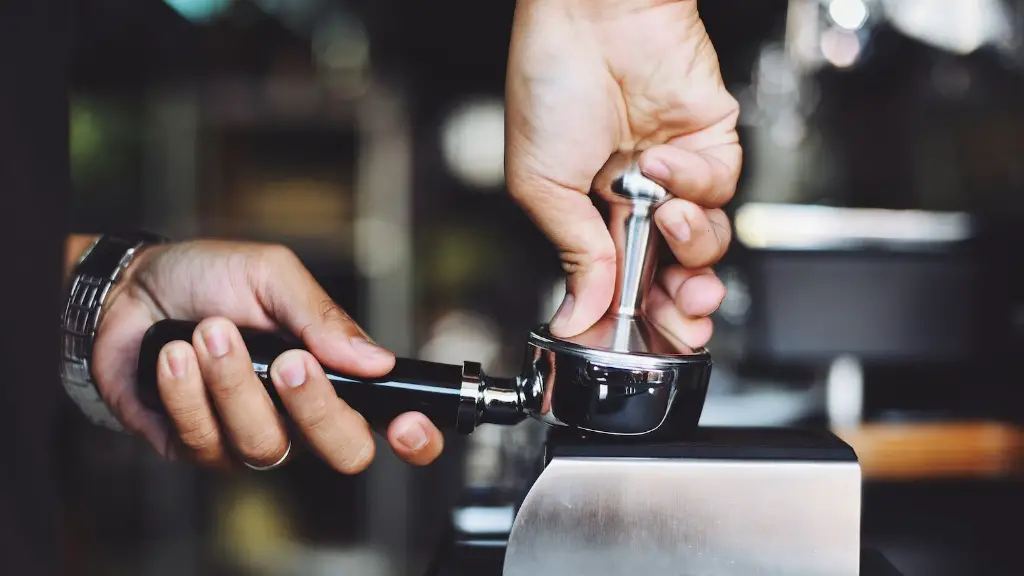Background Information On Drinking Coffee Prior To Blood Draws
Coffee is a popular beverage worldwide and is known for its energizing properties, thanks to its caffeine content. Drinking coffee has been associated with maintaining alertness and decreasing the risk for certain illnesses. Despite this, many people are concerned about consuming coffee before getting a blood draw due to potential risks, like raising blood pressure and interfering with the accuracy of the lab results.
Risks Of Drinking Coffee Before Blood Draws
It is important to note that while caffeine is generally safe in moderate amounts, drinking too much of it can lead to negative health effects, such as feeling jittery, anxious, and with an increased heart rate. Therefore, it is best to limit caffeine intake prior to a blood draw.
Caffeine can also raise blood pressure in those who are not used to consuming it regularly. Blood pressure rises usually last up to 30 minutes and the effects of caffeine can reach peak levels in the bloodstream within 45 minutes of drinking it. Therefore, it is best to wait some time after drinking coffee before getting a blood draw.
Another concern is that caffeine can also interfere with the accuracy of lab results. For example, caffeine can affect the results of tests done to check for diabetes, liver function, and thyroid function among others. Therefore, it is best to avoid consuming high amounts of caffeine prior to getting a blood draw.
Recommended Constraints On Caffeine Intake Before Blood Draws
For those individuals who consume coffee regularly, it is recommended to have a cup of coffee no more than two hours before a blood draw. If a person does not regularly consume caffeine, it is advised to avoid coffee altogether before getting a blood draw.
It is also important to note that some medications and supplements can contain caffeine, though usually in milder concentrations than coffee. Therefore, if taking any medications or supplements, it is important to read the labels and see if they contain any caffeine.
Frequently Asked Questions About Drinking Coffee before Blood Draws
Q: Can I drink coffee the day of my blood draw?
A: Yes, as long as it is 2 hours before you are scheduled for the blood draw.
Q: Is decaf coffee an option?
A: Decaffeinated coffee is an option for those who want to avoid the potential risks of drinking regular coffee before a blood draw. However, it is important to note that decaf coffee may still contain traces of caffeine, so it is best to limit or avoid altogether decaf coffee prior to getting a blood draw.
Q: Is it safe to drink coffee while fasting?
A: Yes, as long as it is 2 hours before the blood draw. It is important to note that drinking coffee while fasting can decrease the accuracy of some tests, so it is best to avoid it if possible.
Q: Is drinking coffee before a blood test going to affect the results?
A: Yes, caffeine can affect the accuracy of some tests done in the laboratory. Therefore, it is best to avoid drinking coffee before a blood draw to ensure the most accurate results.
Additional Considerations When Drinking Coffee Prior To Blood Draws
Since coffee is generally metabolized quickly in the body, it is important to note that drinking coffee immediately before getting a blood draw may have some effect on the tests done in laboratory. Even if the results are not compromised, it is still important to limit coffee intake prior to a blood draw.
In addition, coffee contains a large group of compounds, including antioxidants and other nutrients that can act as stimulants and affect the blood tests. For these reasons, it is best to avoid coffee altogether prior to a blood draw.
How To Prepare Properly Prior To Blood Draws
In general, it is best to avoid consuming any type of caffeine two hours prior to a blood draw. If someone consumes coffee regularly and cannot avoid it, they should limit the amount of caffeine they are consuming and wait two hours before getting the blood draw.
It is also important to discuss any medications or supplements the person may be taking with their doctor, as these can also contain caffeine. Additionally, it is important to follow any special instructions from the doctor, like not eating or drinking before the blood draw, as this can interfere with the accuracy of the results.
Things To Consider Before Drinking Coffee Prior To Blood Draws
When drinking coffee prior to a blood draw, it is important to keep in mind the potential risks that can come with it. Caffeine can affect blood pressure, interfere with the accuracy of lab results, and cause restless feelings.
Therefore, those individuals who consume coffee regularly should limit the amount they are drinking and wait two hours before getting the blood draw. Additionally, it is best to avoid drinking coffee at all if possible in order to ensure the most accurate lab results.
Test Results Post Consumption Of Coffee Before Blood Draws
There is some research to suggest that drinking coffee prior to a blood draw can have an effect on the test results. For example, a study from 2014 found that drinking coffee before a blood draw can cause a decrease in hemoglobin levels. However, the results of this study were not conclusive, as other factors such as diet and medication could have also affected the results.
Furthermore, another study from 2008 found that drinking coffee prior to a blood draw can decrease the accuracy of certain tests, such as tests for cortisol and testosterone levels. Therefore, it is important to limit the amount of coffee consumed prior to getting a blood draw in order to ensure the accuracy of the results.
Potential Physical Effects Of Drinking Coffee Before Blood Draws
The effects of drinking coffee before a blood draw can vary from person to person, depending on their caffeine tolerance. In general, coffee can elevate heart rate, blood pressure, and nervousness. Additionally, drinking coffee can also cause restlessness and difficulty sleeping in those who are sensitive to caffeine.
Therefore, it is important for individuals to assess their caffeine tolerance and determine if it is safe for them to consume coffee before getting a blood draw. Additionally, if someone is taking medication or supplements, it is important to read the labels and look for caffeine as some medications and supplements can contain caffeine.
Ensuring Accuracy Of Blood Tests Through Proper Preparation Before Blood Draws
In order to ensure the accuracy of the lab results, it is important to limit caffeine intake prior to a blood draw. This includes avoiding coffee, and decreasing the amount of decaffeinated coffee consumed prior to the blood draw. Additionally, it is important to wait at least two hours after consuming caffeine before getting a blood draw.
It is also important to pay attention to medications or supplements taken prior to a blood draw, as these can also contain caffeine. Lastly, following any special instructions from the doctor is also important in order to ensure accurate results.


